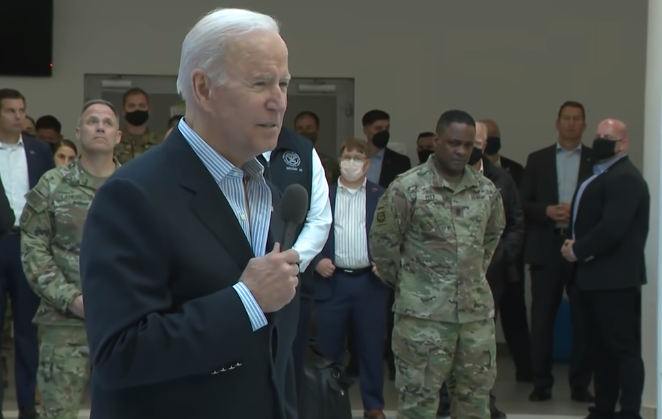
Currently, more than 260,000 servicemen and women in the U.S. military are only partially vaccinated — that is, they have only received one vaccine shot against Covid instead of two — and are now facing separations and discharges.
In February, Secretary of the Army Christine Wormuth laid out the separations policy, declaring, “Army readiness depends on Soldiers who are prepared to train, deploy, fight and win our nation’s wars… Unvaccinated Soldiers present risk to the force and jeopardize readiness. We will begin involuntary separation proceedings for Soldiers who refuse the vaccine order and are not pending a final decision on an exemption.”
Of the more than 268,000 servicemen and women not fully vaccinated, more than 252,000 are in the Army, or about 27.5 percent of the more than 914,000 men and women in the Army, according to the Department of Defense.
Other service branches are almost fully vaccinated. Only 2,983 Marines out of more than 203,000, or 1.4 percent, are only partially vaccinated, 5,300 sailors out of more than 389,000, or 1.35 percent, and 8,285 airmen out of more than 505,000, or 1.6 percent.
So, we’re mostly talking about the Army.
Every year, the U.S. military recruits more than 180,000 Americans for both active and reserve duty. In 2021, the Army recruited 57,600 active duty and 11,700 reserve duty soldiers, or about 69,000.
To offset a sudden loss of 252,000 soldiers — three-and-a-half years’ worth of recruits — then, would take the Army years, a decade or longer to recover from.
The military is already having a recruitment problem as the population of those eligible to serve continues to plummet, with 71 percent of the 34 million between the ages of 17-to-24-year-olds ineligible to serve due to being overweight, not having a high school diploma, medical issues or past convictions, according to the Pentagon.
Obviously, purging the Army will only exacerbate the recruitment problem.
Moreover, Covid is not as deadly as it was in 2020 as Covid fatality rates continue to plummet, according to the latest data from the Institutes for Health Metrics and Evaluation (IHME).
When the pandemic began, estimates cases peaked in March 2020 at 155,000 per day, and then fatalities peaked by April 17 at 2,335 daily, an implied 1.4 percent fatality rate.
The next winter, cases peaked at 505,000 in late Dec. 2020, with 3,466 peak deaths on Jan. 10, 2021, and the implied fatality rate had dropped to 0.69 percent before almost any vaccines had been administered.
This past winter, cases peaked at 3.9 million daily in early Jan. 2022, with 2,616 peak deaths on Jan. 27, an implied fatality rate of 0.067 percent.
And with the recent spring and summer waves, daily cases peaked at 660,000 in early May and again in June at 530,000, with peak deaths of 390 on June 28, an implied fatality rate between 0.059 percent and 0.073 percent.
Do we really need vaccine mandates at this point?
And with a world at war, is this really the right policy? Russia has invaded Ukraine and may be threatening Europe with a wider war. China could invade Taiwan any day now. Either emergency could suddenly require lots of troops to be recruited and deployed overseas.
That makes Biden’s vaccine mandates not merely a problem for those who could lose the ability to serve their country, but a potential threat to national security itself if he follows through with his threatened Army purge. Let’s hope it doesn’t come to that.
Robert Romano is the Vice President of Public Policy at Americans for Limited Government.






